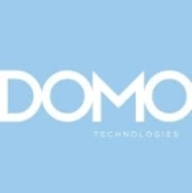

Informatica PowerExchange and Domo compete in the data integration and business intelligence category. Informatica PowerExchange holds the upper hand for handling massive data volumes efficiently with robust data transformation capabilities.
Features: Informatica PowerExchange is known for robust data transformation capabilities, real-time integration, and performance optimization through pushdown strategies. It integrates well with multiple data systems and offers stability and efficiency for data management. Domo is valued for its ease of graph creation, user accessibility for non-technical users, and comprehensive data connectivity. It supports fast data visualization and analysis with extensive pre-built connectors.
Room for Improvement: Informatica PowerExchange may enhance tool integration and reduce complexity to ease use without training. Users find pricing expensive. Domo could improve visualization flexibility and optimize data management tools, which can be slow with large datasets. Enhancing the ETL process speed is also suggested.
Ease of Deployment and Customer Service: Informatica PowerExchange primarily supports on-premises deployment, praised for technical support reliability, though some users report delays. Domo offers versatile deployment options, including cloud configurations. Its technical support is average, with noted ticket resolution delays.
Pricing and ROI: Informatica PowerExchange is perceived as expensive, with pricing based on capacity and additional licenses. Despite the high cost, it is regarded as a worthwhile investment due to comprehensive capabilities contributing to improved ROI. Domo's pricing is high but justified by its ease of use and feature richness. It offers flexible pricing models and is often seen as a valuable business intelligence investment, with some users still viewing cost as a hurdle.
If you're actually using Domo at a very limited case and you're being charged $20,000, we've seen ROI there, but once it goes really high, you really need to check your metrics and check your profit.
It is considered cost-efficient because it leads to the re-utilization of channels and platforms, which saves time and money.
They were quite professional and in around three to five working days, they had identified where they suspected there was an issue and I was able to fix it.
It's very easy to get technical support from Domo.
Support-wise, they are good.
Their support aligns with what I have experienced with Informatica data quality teams, and it is quite effective.
Informatica's technical support team is very supportive and provides help whenever required.
The support was good enough, and they were able to resolve all the issues I raised in the past.
The fact that you're able to easily identify the pipelines or flows that have errors, and it notifies you when you're building a pipeline where you can run previews and tell where to fix issues, is helpful.
When fetching files larger than 100 MB from SFTP or any other portal, Domo becomes slow due to the heavy file size.
Sigma, which is written for Snowflake, scales more easily than Domo.
In recent years, I haven't had such cases. It's quite stable and I don't have any reservations on its stability.
In terms of overall stability of the platform, it's very stable.
During that time, we faced issues from the project side as Domo was not visible in our portal.
Technical errors sometimes occur, such as network breakages at the source level, which breaks connectivity.
End users require a license to run their own reports and dashboards, which are fairly expensive.
Some technical aspects such as Beast Mode calculation could be improved in Domo, as it would provide more clarity and help in giving insights to clients or customer business team requirements.
One of the areas where we've had frustrations with Domo is the aesthetics. The aesthetics are quite limited compared to other BI tools such as Tableau and Power BI.
One area that could be improved is performance, as PowerExchange sometimes has less performance compared to native connectors when dealing with a huge volume of data.
The addition of data quality dashboards or measures would also help in profiling data to assess its health before sharing or moving it.
Domo's pricing is high compared to other BI tools, and it is costly.
For long-time users, it can become expensive, but the trade-off is access to the entire platform instead of licensing different components separately.
They quoted approximately one dollar per KB.
The pricing and cost depend heavily on SAP's licensing structure, especially if using SAP integration services.
Informatica PowerExchange is considered cost-efficient due to reduced number of APIs needed.
App Studio is valuable because it allows all the customization we needed; we can decode it, with the view and grid which are all I need, drill-downs, and everything can be done the way I need it.
I have been using it for four years and have been able to extract the information I need from it.
The most valuable feature of Domo is the fact that you can connect multiple inputs and you don't have to have a data warehouse.
It also reduces the number of APIs needed for new integrations by offering a unified exchange platform.
PowerExchange is one of the best software solutions to build integrations with non-Oracle or standard database services, especially for SAP and Hana products.
The primary advantage of Informatica PowerExchange is being able to extract data from source systems that Informatica does not natively support.
| Product | Market Share (%) |
|---|---|
| Informatica PowerExchange | 1.2% |
| Domo | 0.7% |
| Other | 98.1% |


| Company Size | Count |
|---|---|
| Small Business | 16 |
| Midsize Enterprise | 11 |
| Large Enterprise | 20 |
| Company Size | Count |
|---|---|
| Small Business | 8 |
| Midsize Enterprise | 3 |
| Large Enterprise | 12 |
Domo is a cloud-based, mobile-first BI platform that helps companies drive more value from their data by helping organizations better integrate, interpret and use data to drive timely decision making and action across the business. The Domo platform enhances existing data warehouse and BI tools and allows users to build custom apps, automate data pipelines, and make data science accessible for anyone through automated insights that can be shared with internal or external stakeholders.
Find more information on The Business Cloud Here.
Informatica PowerExchange Connectors provides high performance, out-of-the-box connectivity without having to develop custom data access programs.
We monitor all Data Integration reviews to prevent fraudulent reviews and keep review quality high. We do not post reviews by company employees or direct competitors. We validate each review for authenticity via cross-reference with LinkedIn, and personal follow-up with the reviewer when necessary.